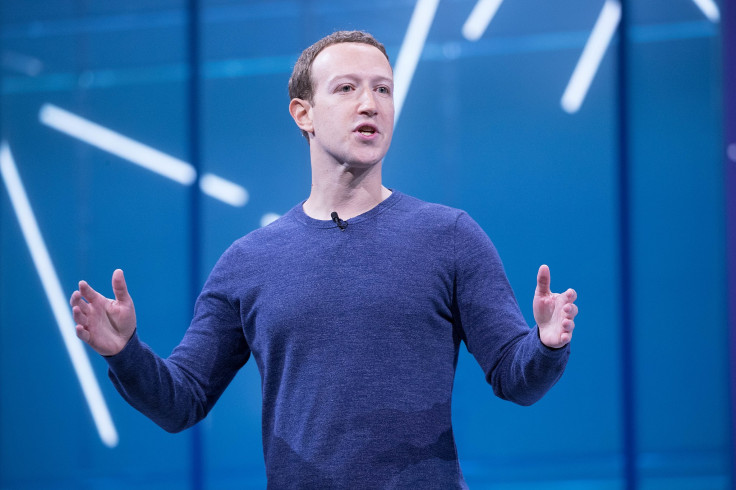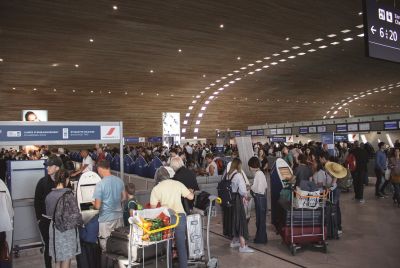Zuckerberg's AI Lab Has 'Few Seats on the Boat'—Who Gets In, and Why It's So Limited
Inside Meta's superintelligence lab: no top-down deadlines, minimal hierarchy, and ultra-selective hiring

Meta chief executive Mark Zuckerberg has set out how the company's'superintelligence' lab will run: a deliberately small, flat, deadline-free research unit built for extreme talent density, aimed at advancing artificial general intelligence (AGI).
The lab is expanding on the back of Meta's reported ~49% investment in Scale AI and Alexandr Wang's move to Meta. This combination, Zuckerberg hopes, will accelerate breakthroughs in model design, training efficiency, and real-world deployment.
A Talent-Dense Team With No Top-Down Deadlines
In a recent interview, he likened the team to a boat with 'precious' seats, underscoring the lab's exclusivity.
Speaking on 'The State of AI' with Rowan Cheung podcast, Zuckerberg revealed that Meta's superintelligence lab operates without traditional corporate deadlines.
'It's research—you don't know how long the thing is going to take,' he said. 'Everyone's competitive. They all want to be at the frontier and doing leading work. Me setting a deadline for them isn't going to help.'
The lab's structure is intentionally flat, with minimal layers of non-technical management. Zuckerberg criticised the decay of technical expertise among managers who drift away from hands-on work:
'People start technical and then they go into management, and then six months or a year later, you still think you're technical, but you actually haven't been doing the stuff for a while. The knowledge just kind of slowly decays or quickly decays in an environment that's moving as quickly as that.'
Why the Seats Are So Limited
Zuckerberg's metaphor of 'seats on the boat' reflects his belief that the lab must remain small and agile. 'You don't need many, many hundreds of people—you need 50 to 100 people,' he said. 'It's a group science project.'
He emphasised that each hire carries significant weight, warning that a single misfit could derail the team's progress. 'If someone isn't pulling their weight on that, then that has this huge negative effect, in the way that it doesn't for a lot of other parts of the company,' he added.
The Perks and Pressure of Making the Cut
Those who do land a seat on Zuckerberg's AI boat enjoy access to vast computing resources, multimillion-dollar compensation packages, and the freedom to pursue frontier research without corporate interference.
Meta has reportedly spent billions on infrastructure and talent acquisition, including a $15 billion (approx. £11 billion) investment in Scale AI and the recruitment of its CEO, Alexandr Wang, to lead the superintelligence lab.
The lab has also poached top researchers from OpenAI and Google DeepMind, reinforcing its reputation as one of the most exclusive AI teams in Silicon Valley.
A High-Stakes Move Toward AGI

Meta's superintelligence lab is tasked with developing AGI, capable of human-like reasoning and adaptability.
Zuckerberg's decision to overhaul the team followed concerns that Meta's Llama-4 model was 'not on the right trajectory,' prompting a hiring spree and a shift in strategic focus.
By building small, talent-dense teams and removing bureaucratic constraints, Zuckerberg hopes to accelerate breakthroughs in AI architecture, training efficiency, and real-world deployment.
The Risks of Exclusivity
While the lab's structure may foster innovation, it also raises questions about scalability and transparency.
Critics argue that such insular teams risk becoming echo chambers and that the lack of deadlines could hinder accountability. Others point to the ethical implications of concentrating AGI development within a small, privately controlled group.
Still, Zuckerberg appears confident in his approach. 'It's a group science project,' he reiterated. 'Seats on the boat are precious.'
What To Watch Next
Key markers include formal org charts for the lab, regulatory filings or further detail on the Scale AI transaction, the headcount staying near 50–100, and evidence of progress through peer-reviewed work, open-weight releases or product integrations.
© Copyright IBTimes 2025. All rights reserved.




















